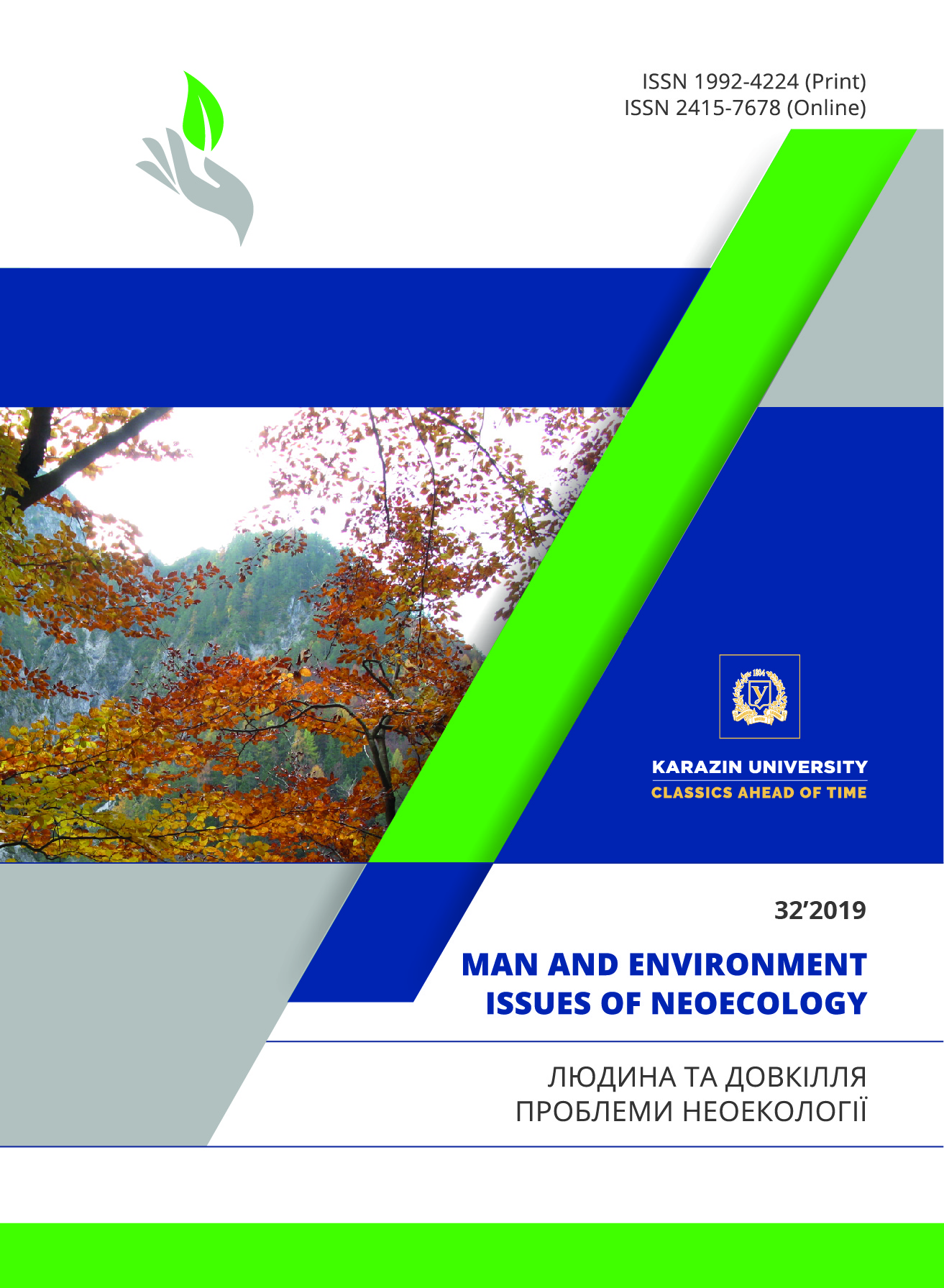Current State of the Municipal Solid Waste Management and Treatment in Ukraine
Abstract
Purpose. Review of the current situation in the municipal solid waste management area in Ukraine and outline the possible direction of an effective waste management system organization at the regional level.
Methods. System analysis, mass balance method, generalization and interpretation.
Results. Starting of the European integration process, Ukraine has initiated a number of reforms in the legislative and regulatory sphere of waste management. In particular, the National Strategy of waste management in Ukraine by 2030 was approved; the draft Law of Ukraine “On Waste Management” and others were developed. There are plants for recovering certain types of recyclable raw materials in Ukraine. The model of effective municipal solid waste management at the regional level should be based on baseline conditions: waste composition and available recovery capacity. It is shown that almost half of the municipal solid waste mass is food and garden waste. This means that an effective solid waste management system must be based on the separation and subsequent treatment of such waste, which will allow the achievement of the National Strategy targets.
Conclusions. The municipal solid waste problem of is extremely urgent for Ukraine, because in the conditions of mass increasing and composition complication the main method of treatment remains disposal. Changes in legislation and the existing infrastructure for recycling the most common and resource-intensive categories of recyclables require the introduction of effective municipal solid waste management systems. We believe that to achieve a significant result, it is necessary to pay attention to easily-decomposed organic waste. Development a system for the proper collection and further use of such waste will help to achieve significant performance indicators of municipal solid waste potential using.
Downloads
References
The state of municipal solid waste management in Ukraine by 2018. (2019). Available at: http://www.minregion.gov.ua/napryamki-diyalnosti/zhkh/terretory/stan-sferi-povodzhennya-z-pobutovimi-vidhodami-v-ukrayini-za-2018-rik/ (In Ukrainian).
The Law of Ukraine on Waste. (1998). Available at: https://zakon.rada.gov.ua/laws/show/187/98-%D0%B2%D1%80 [(In Ukrainian).
Council Directive 1999/31/EC of 26 April 1999 on the landfill of waste. (1999). Available at: https://eur-lex.europa.eu/eli/dir/1999/31/oj
Directive 2008/98/EC of the European Parliament and of the Council of 19 November 2008 on waste and repealing certain Directives. (2008). Available at: https://eur-lex.europa.eu/eli/dir/2008/98/oj
The national Strategy of waste management in Ukraine by 2030. (2017). Available at: https://zakon.rada.gov.ua/laws/show/820-2017-%D1%80 (In Ukrainian).
The Draft Law of Ukraine on Waste management. (2019). Available at: http://w1.c1.rada.gov.ua/pls/zweb2/webproc4_1?pf3511=67094 (In Ukrainian).
The Draft Law of Ukraine On reducing the number of plastic bags in civil circulation. (2019). Available at: http://w1.c1.rada.gov.ua/pls/zweb2/webproc4_1?pf3511=66892 (In Ukrainian).
Semko, P.P. (2019). Current trends in the generation and treatment of secondary raw materials in Ukraine. Waste Management – 2019: presentation of reports. Available at: https://drive.google.com/file/d/1aaSkLW8JIV9VWXT4C9zpvdrJi7rIcjWJ/view (In Ukrainian).
Prykhodko, V., Hiulakhmedova, K. (2018). The characteristic of bioorganic component of municipal solid waste. Visnyk of Karazin Kharkiv National University, 19, 82-90. DOI : 10.26565/1992-4259-2018-19-08. (In Ukrainian).
Report on the analysis of the existing state of the waste management system in the Odessa region. (2017). TOV ESKO “Ekologichni systemy”, 37. (In Ukrainian).
Prykhodko, V. Yu., Safranov, T. A., Shanina, T. P. (2018). The optimization of bioorganic waste treatment from municipal solid waste. Developing Waste Management Programs for United Territorial Communities: Challenging Issues and Best Practices: Collection of materials from the National Waste Management Forum in Ukraine: Legislation, Economics, Technology, Kyiv, 135-136 .(In Ukrainian).
Safranov, T. A., Gubanova, E. R., Shanina, T. P., Prikhodko, V. Yu. (2014). Optimization of municipal waste man-agement and treatment system in the context of urban areas sustainable development. Sustainable devel-opment, 16, 11-18. (In Russian).
Veolia. A modular approach to the formation of an individual waste management system. (2019). Waste
Management – 2019: presentation of reports. Available at: https://drive.google.com/file/d/1XaEsjcz1MT1iN4nt6B46IJECeGr5OKPW/view?usp=sharing (In Ukrainian).
Martynenko, A. (2019). Waste management hierarchy. Waste Management – 2019: presentation of reports. Available at: https://drive.google.com/file/d/1yfHOetdNuj9a62SkQi1dvOn_4qH2VEnx/view (In Ukrainian).
Authors reserve the right of attribution for the submitted manuscript, while transferring to the Journal the right to publish the article under the Creative Commons Attribution License 4.0 International (CC BY 4.0). This license allows free distribution of the published work under the condition of proper attribution of the original authors and the initial publication source (i.e. the Journal)
Authors have the right to enter into separate agreements for additional non-exclusive distribution of the work in the form it was published in the Journal (such as publishing the article on the institutional website or as a part of a monograph), provided the original publication in this Journal is properly referenced
The Journal allows and encourages online publication of the manuscripts (such as on personal web pages), even when such a manuscript is still under editorial consideration, since it allows for a productive scientific discussion and better citation dynamics (see The Effect of Open Access).





